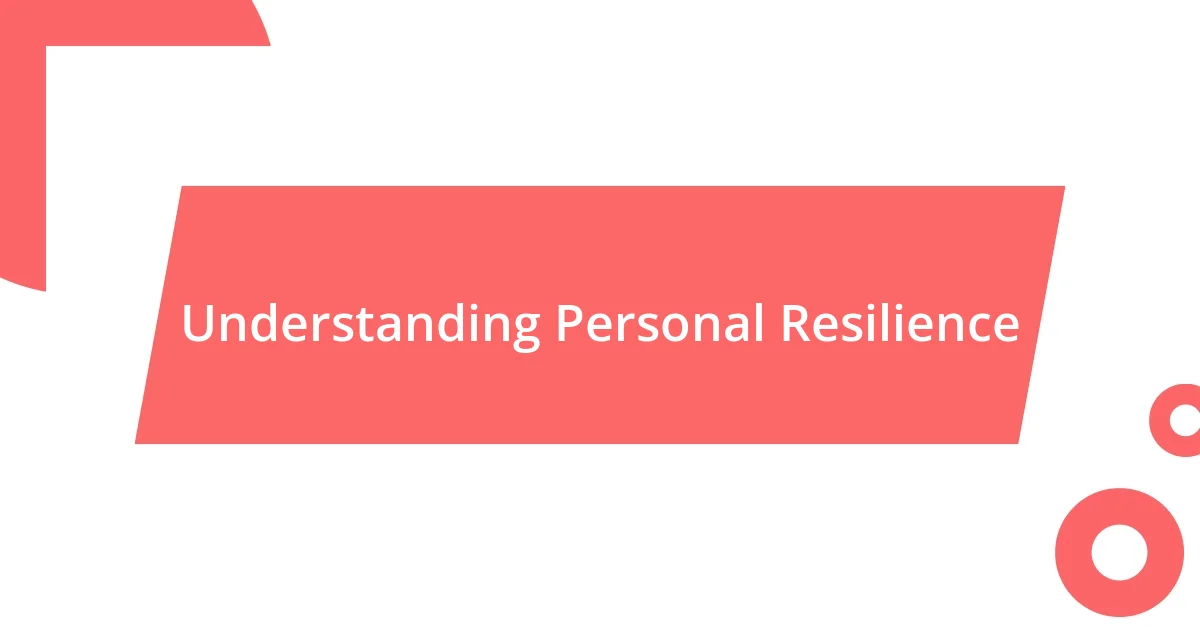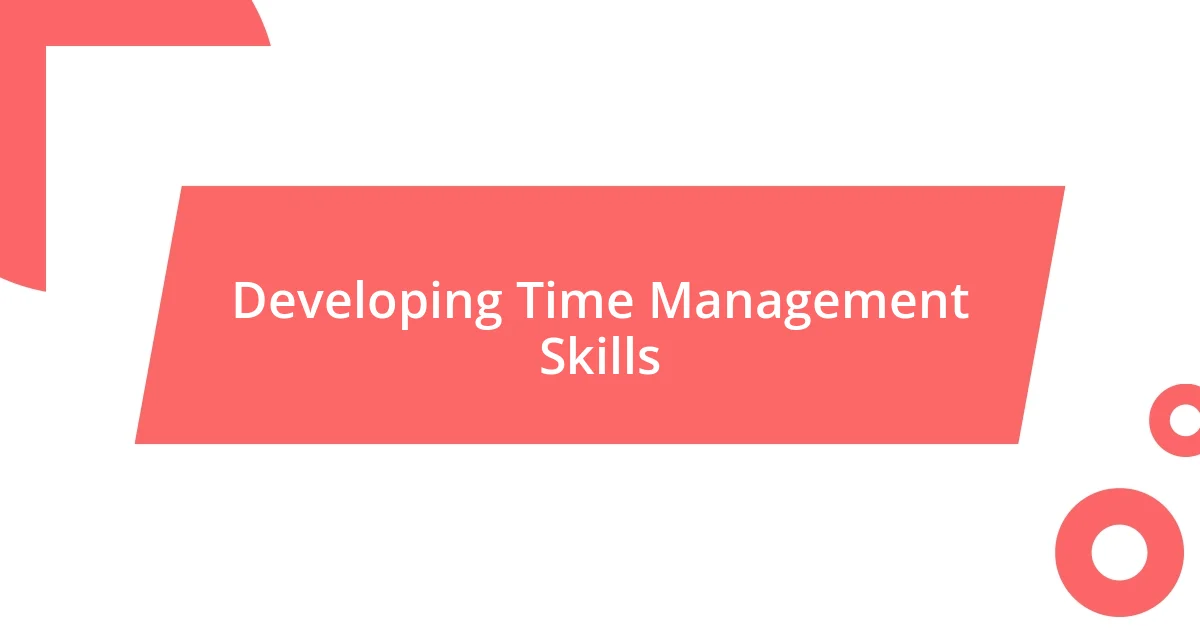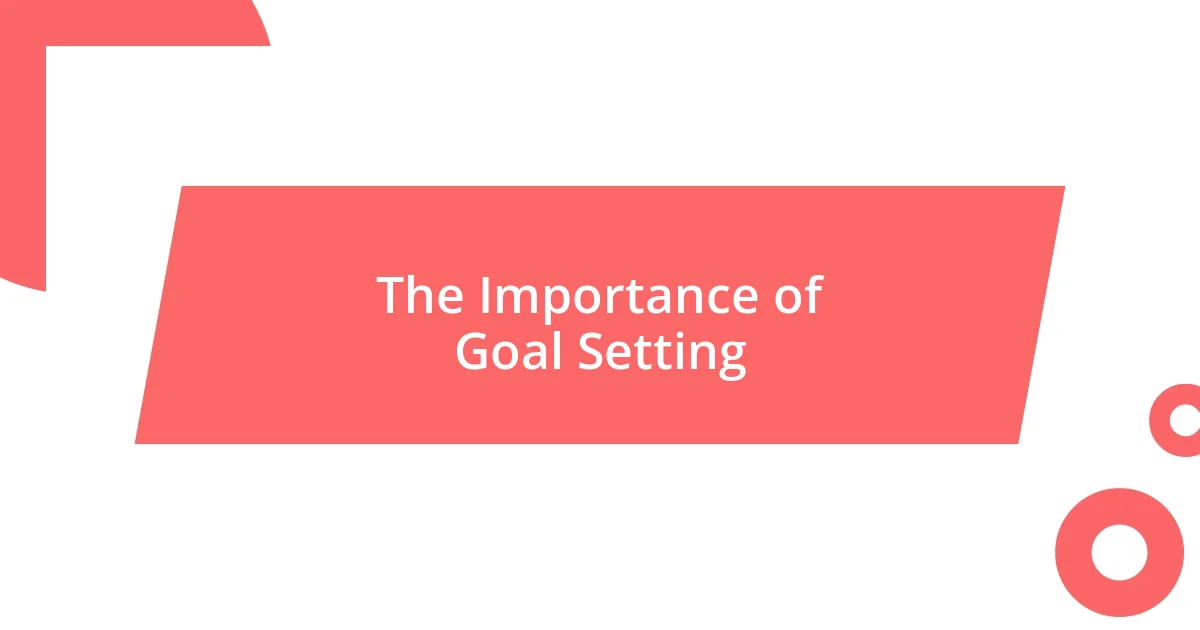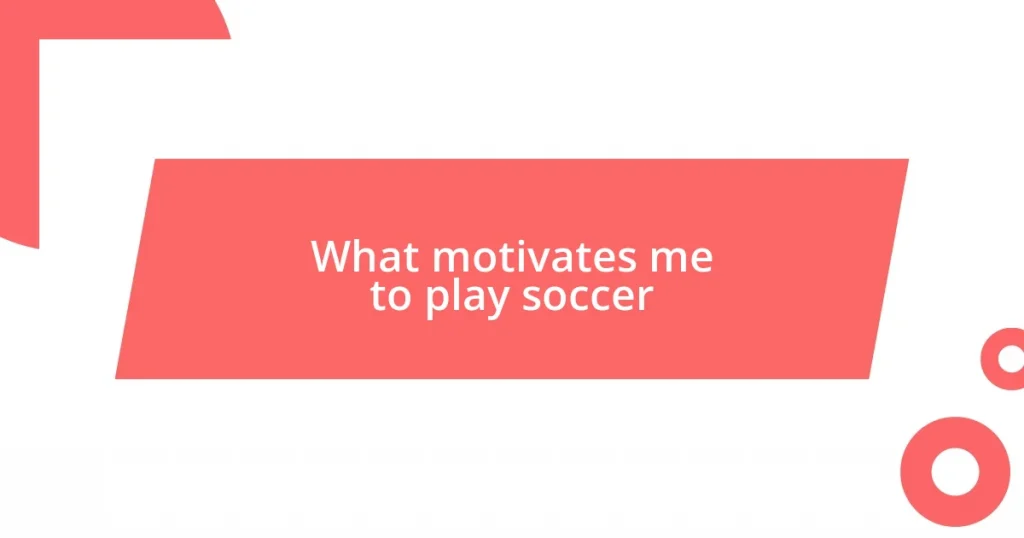Key takeaways:
- Competing in sports fosters personal growth through resilience, teamwork, and embracing both success and failure as essential learning experiences.
- Effective communication and collaboration within a team enhance performance and create a supportive environment, crucial for overcoming challenges.
- Goal setting and time management learned in sports translate to everyday life, instilling discipline and a sense of purpose that drives personal achievement.

Introduction to Competing in Sports
Competing in sports has always been more than just physical activity for me; it’s about pushing limits and discovering inner strength. The first time I stepped onto a track for a sprint race, my heart raced, and my palms felt sweaty. Have you ever felt that electrifying mix of anxiety and excitement? It’s a feeling that engulfs you as you prepare to give your all.
There’s something uniquely transformative about the competition. I recall a moment during a pivotal match when the atmosphere was thick with tension, and my teammates rallied together, a collective heartbeat in the face of adversity. That unity taught me the power of camaraderie—something I believe every athlete experiences. We often see our competitors not just as rivals but as partners in this journey of growth, don’t we?
Ultimately, competing challenges our perspectives on success and failure. With every victory, there’s a newfound confidence, and with every loss, I learned resilience—an indelible lesson that extends far beyond the field. Reflecting on those moments, I realize how each competition shapes not just our skills but who we are as individuals.

Key Lessons from Team Dynamics
Team dynamics have imparted some of my most essential lessons. I remember a day during practice when our coach brought us together to discuss communication. Just sharing how we felt about each other’s strengths and weaknesses transformed our teamwork. Suddenly, I felt more connected to my teammates. We learned to appreciate one another’s unique contributions, creating an environment where everyone’s voice mattered. Isn’t it fascinating how open dialogue can change a group’s energy?
On another occasion, we found ourselves at a critical tournament, trailing in points. It was in that moment of despair that I witnessed the true spirit of our team. Instead of giving up, we leaned into each other, sharing encouragement and tactical suggestions. This experience showed me the importance of adaptability and trust; when someone is down, we lift them up. Together, we found strength in our vulnerabilities, which not only helped us turn the game around but solidified our bond.
Lastly, I’ve learned that collaboration and competition coexist within teams. Reflecting on my own experiences, we often found ourselves pushing one another to excel while nurturing a support system. I remember sprinting side by side with a teammate, each encouraging the other to reach greater heights. It’s this delicate balance between camaraderie and competitive spirit that cultivates a winning mindset. Can you recall a time when your team members pushed you beyond your limits?
| Key Aspect | Lesson Learned |
|---|---|
| Communication | Creating an open dialogue fosters connection and morale. |
| Adaptability | Trusting teammates during adversity builds resilience and teamwork. |
| Collaboration | Balancing competition with support elevates everyone’s performance. |

Understanding Personal Resilience
Understanding personal resilience has been one of the most eye-opening aspects of my time in sports. I vividly remember a championship game where we were down by several points. The feeling of defeat loomed heavily in the air, but rather than retreating into despair, I felt a surge of determination within me. Something clicked—I realized resilience isn’t just about bouncing back; it’s about harnessing that challenging moment and using it as a catalyst for growth. It’s those hard lessons that drive me to keep pushing my boundaries.
Here are some aspects of personal resilience that I’ve discovered through competition:
-
Embracing Discomfort: I learned that discomfort often precedes growth. Those moments of fatigue during training pushed me to find deeper strength I never knew I had.
-
Mindfulness in Pressure: There were times when anxiety threatened to overwhelm me during critical matches. I started practicing mindfulness techniques, which helped me center my thoughts and focus on the task at hand.
-
Learning from Failure: I recall a particular tournament where I performed far below my potential. Instead of being discouraged, I took time to analyze what went wrong, which ultimately strengthened my resolve for future competitions.
-
Support Systems: My teammates became my lifeline. In times of struggle, leaning on their support not only helped me stay grounded but also reinforced the idea that resilience is often a shared journey.
-
Adapting to Change: Injury or unexpected setbacks can feel devastating, but I learned to adapt my mindset. Each new hurdle became an opportunity for creative problem-solving and resilience-building.
These lessons shaped my understanding of resilience, transforming it from a mere concept into a lived experience that continues to influence my life beyond sports.

Developing Time Management Skills
Developing time management skills is one of the most practical takeaways from my sports experience. I remember juggling practice sessions, schoolwork, and part-time jobs. At first, it seemed overwhelming, but I developed a system using a simple planner. Writing down my commitments not only helped me prioritize tasks but also gave me a sense of control. Have you ever felt that rush when you finally check off an item from your to-do list?
One vivid example stands out: preparing for both a big tournament and final exams simultaneously. I had to carve out time for rigorous practice while still mastering my subjects. I created a schedule that chunked my day—training in the morning, study sessions in the afternoon, and a quick review before bed. This approach taught me that being intentional with my time can maximize both performance in sports and academic success. Did you know that effective time management can lead to better results in both areas?
Eventually, I learned to be flexible with my schedule, adapting as priorities changed. Sports instilled in me a valuable lesson: plans might need adjusting, but maintaining balance is key. When a last-minute practice was called, I learned to shift gears without panic, finding creative solutions to fit everything in. Have you ever had to adapt your schedule unexpectedly? Carrying that lesson into daily life has been invaluable, reminding me that a little planning goes a long way.

The Importance of Goal Setting
Setting goals has been pivotal in my sports journey. I vividly remember setting a personal record during a track meet. The excitement I felt when I crossed that finish line, knowing I had achieved a target I worked hard for, was indescribable. That moment taught me that goals give us direction and a sense of purpose. How often do we drift through life without a clear destination?
One particular instance stands out to me: I was training for a big competition, and my coach encouraged me to set both short-term and long-term goals. At first, it felt daunting, but I started breaking down my aspirations into actionable steps. Each week, I’d focus on improving my endurance, speed, and technique, celebrating those small victories along the way. This approach not only kept me motivated but also built my confidence. It’s fascinating to realize how tangible progress can stem from clearly defined goals, don’t you think?
Looking back, I see that the discipline of goal setting has influenced every facet of my life. It has instilled a sense of accountability within me—you truly get what you focus on. There were days I didn’t feel like training, but remembering my goals pushed me to lace up my shoes and hit the track. The process of working towards something meaningful transformed my mindset, lighting a fire in me that I carry even beyond sports. How powerful is that?

Enhancing Communication Skills
Competing in sports taught me a lot about enhancing communication skills, often in ways I didn’t initially recognize. I remember the first time I had to lead my team during a practice drill. It was nerve-wracking, yet incredibly rewarding to convey strategies effectively and encourage my teammates. In those moments, I realized that clear communication can foster teamwork and motivate others to perform their best. Have you ever had to rally a group towards a common goal? It’s a unique challenge that really makes you think on your feet.
One unforgettable instance was during a high-stakes relay race. As the final runner, my teammates relied on me to execute our plan seamlessly. We spent hours discussing our baton handoff techniques, refining our signals, and discussing our individual strengths. This experience showed me that communication isn’t just about speaking; it involves active listening and collaboration. The trust we built through those discussions made a tangible difference in our performance. Sometimes, do you find that a few well-placed words can change the atmosphere of a team?
Looking back, I see that every practice session reiterated the importance of supportive communication. The feedback I received from coaches and peers shaped me into a more open communicator. I learned to express not just my thoughts, but also to be receptive to others’ opinions. Those conversations around the water cooler or during team meetings were often where the real magic happened. It’s incredible how sharing and discussing ideas can transform a group dynamic, isn’t it?

Applying Sports Lessons to Life
Competing in sports provided me with invaluable insights that I apply in my everyday life. For instance, I recall a tough basketball game where our team was behind. Instead of panicking, we focused on maintaining our composure and trusting our preparation. This taught me a vital lesson: in life, as in sports, staying calm during challenging times allows clarity to shine through. How often do we face stressful situations off the field and forget to breathe?
In another instance, I found myself in a position where I had to facilitate a discussion among my teammates after a disappointing loss. I gathered everyone around and encouraged each person to share their feelings and thoughts. As we unpacked our collective emotions, I recognized that vulnerability fosters stronger connections. This experience illuminated a powerful truth: expressing our thoughts can bridge gaps and cultivate a sense of unity. Isn’t it interesting how sometimes sharing pain leads to stronger bonds?
Reflecting on these experiences makes me realize that the principles I learned while competing resonate deeply in my everyday interactions. Whether it’s managing time effectively during final exams or encouraging a friend in need, I’ve found that the resilience and teamwork I developed in sports are foundational to my life. Every challenge becomes a new game, and with lessons learned on the field, I strive to play my best. How empowering is it to know we can draw from our past to elevate our future?













